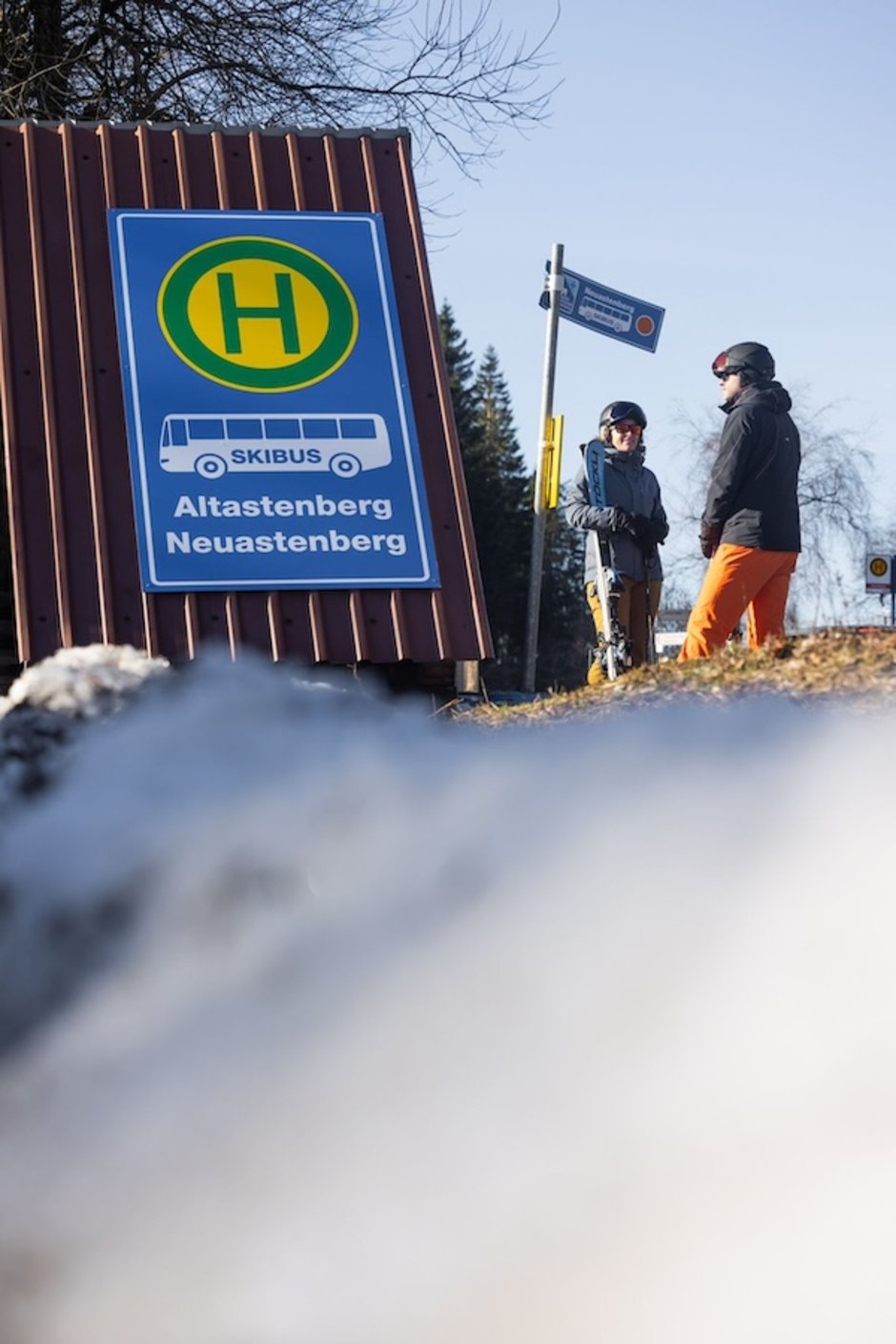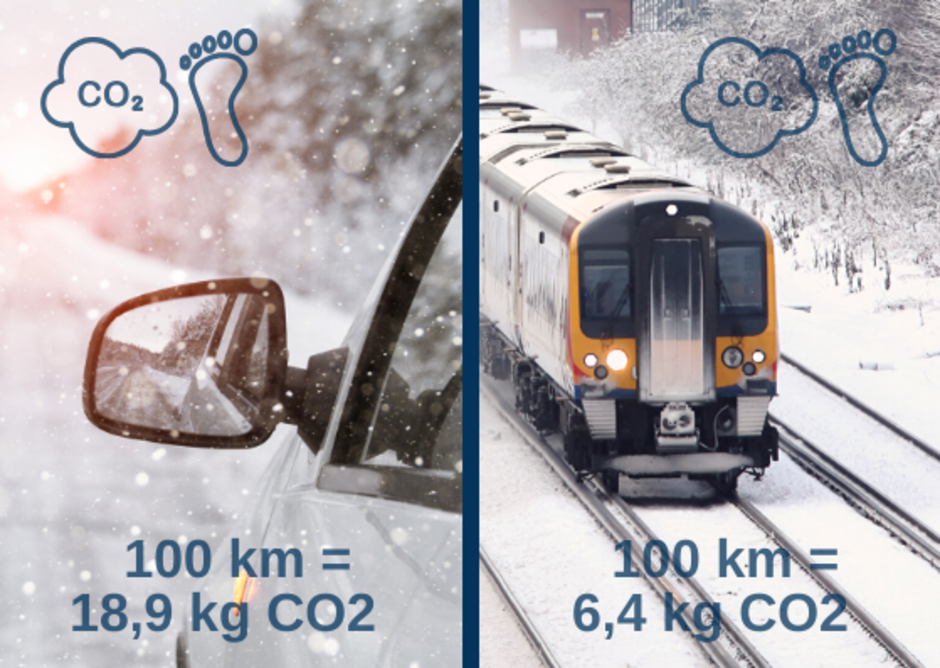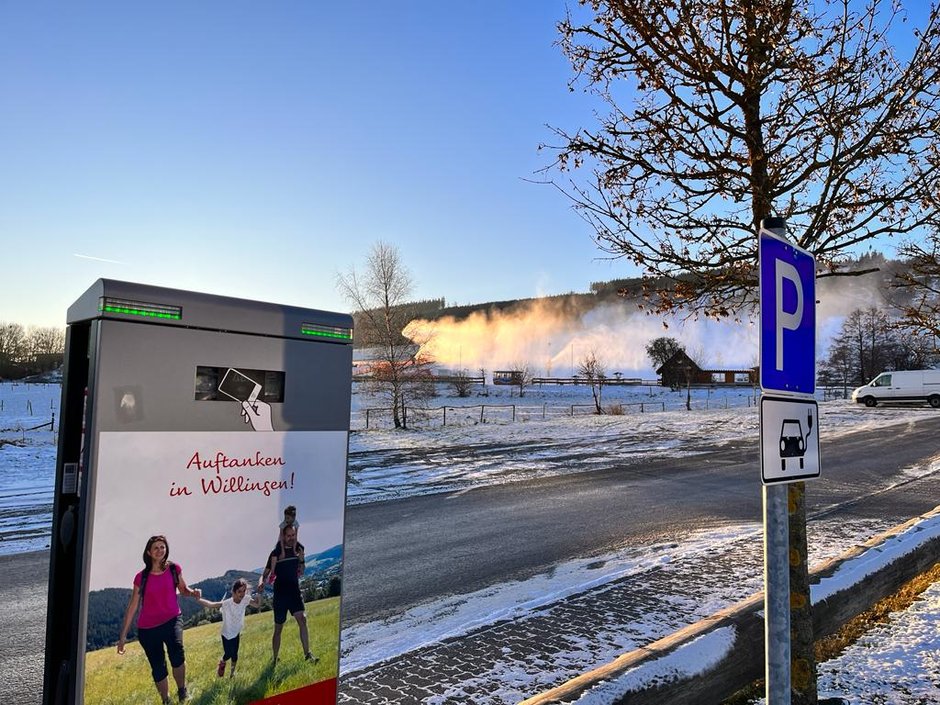
How can guests save energy and CO2 ?
Lift operators are doing a lot to protect the environment and climate. But guests can also do a lot themselves. Travel, food and accommodation account for 84 percent of emissions during a winter sports day. As with other activities, by the way. Ski operations, including snowmaking, account for less than 10 percent.
It all depends on the journey
Guests themselves can make a huge contribution to saving energy and thus reducing the carbon footprint. This is because the largest part of a winter sports day in the Wintersport-Arena Sauerland is the journey there, which accounts for 50 to 70 percent.
Using public transport reduces the CO2 footprint to around 1/3. There are train stations in Olsberg, Winterberg and Willingen, for example. There are bus connections to the slopes in almost all towns.

Carpooling is another option for traveling to the ski resorts. If individual transport is not possible, electric mobility is possible.
The average journey in the Sauerland winter sports arena is rather short due to the nearby conurbations. The average guest has a journey time of around two hours. For a skiing vacation in the Alps, on the other hand, winter sports enthusiasts have to drive five hours or more. The journey is even longer in summer, when holidaymakers travel to the Mediterranean, for example, or even fly to distant islands or other continents. A few more comparisons.
- Snowmaking requires around 4.2 kWh per guest and ski day. That's about as much as a six-kilometer car journey.
- A visit to a thermal spa consumes 20 kW/h per guest, almost five times as much.
- A flight to the Canary Islands, including the outward and return flight, means an energy consumption of 3000 kWh per guest.

Other ways to protect the climate and environment
It is sustainable to invest in high-quality and durable equipment in order to minimize consumption. Equipment should be manufactured using environmentally friendly materials and production practices.
If you rarely ski, it is better to rent your equipment than to buy it. This is also the cheaper option for infrequent use.
Tourist information offices can help you choose accommodation that is committed to renewable energy sources and energy-saving measures.
It is important to avoid consuming goods in disposable packaging and not to leave waste in the countryside, but to dispose of it properly.
When hiking, it is important to stay on the designated paths and not walk cross-country in order to protect the vegetation and wildlife.
